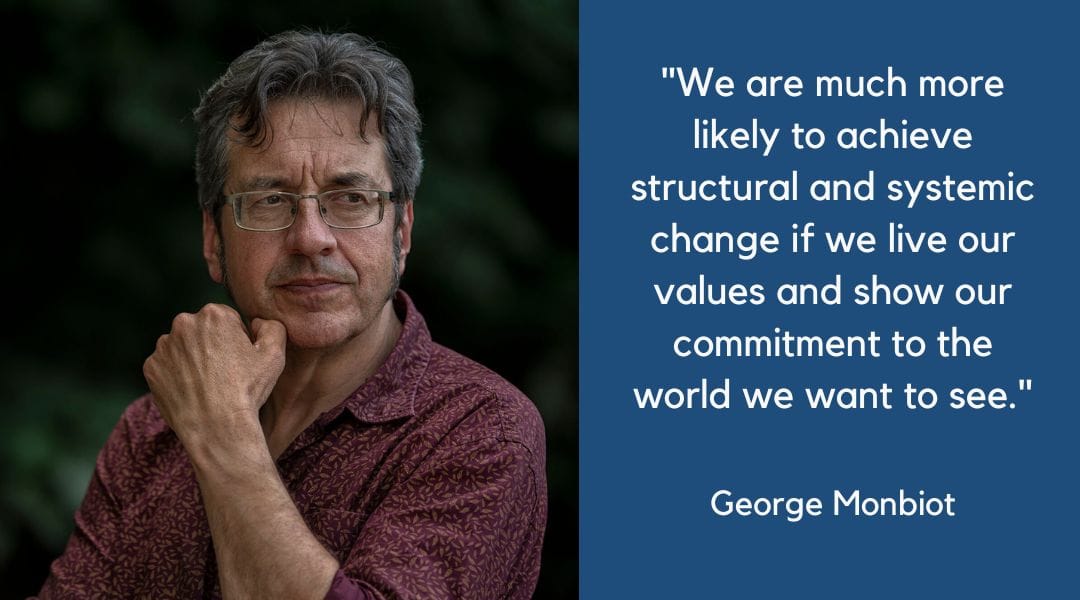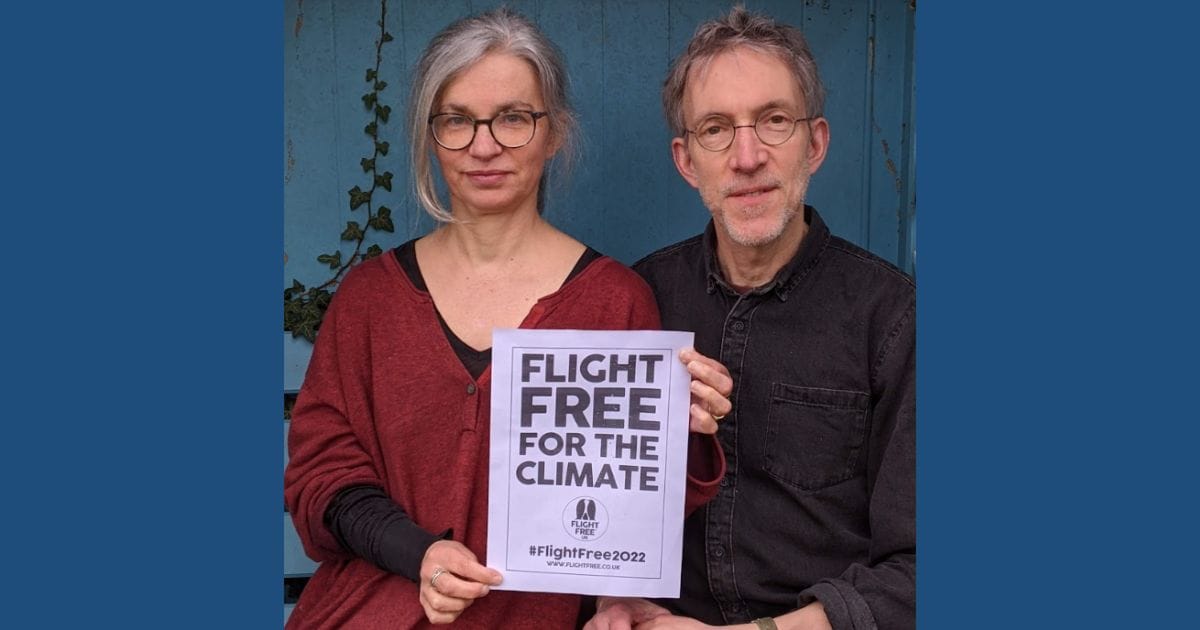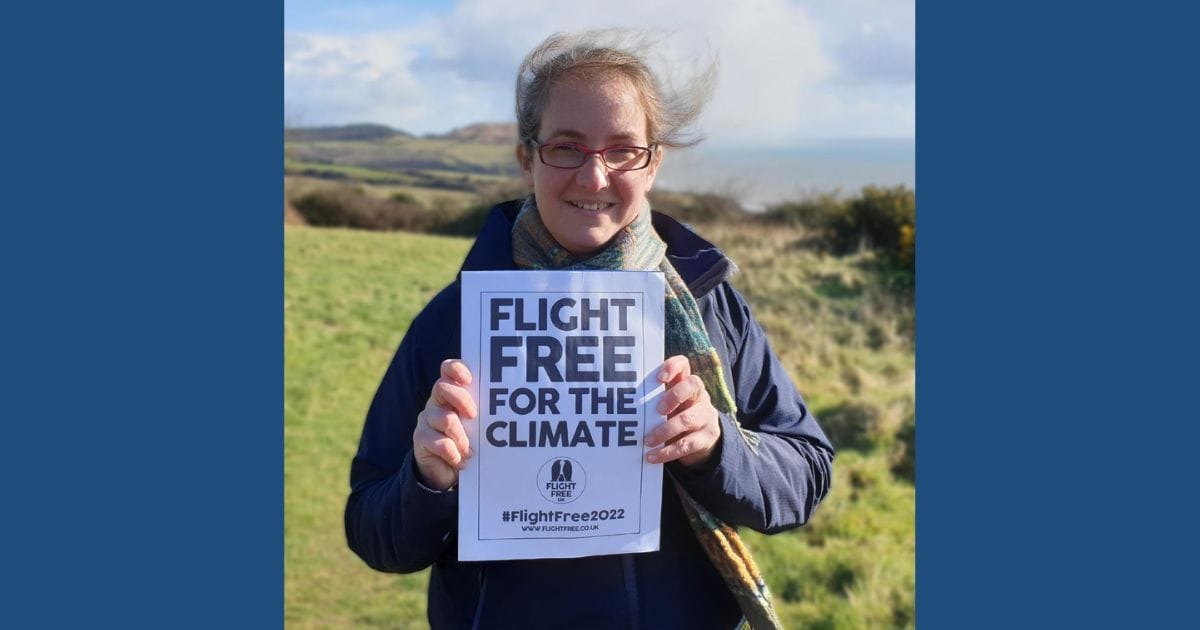George Monbiot has had a long and prominent career as an environmental campaigner, journalist, film maker and commentator. He writes a regular column for the Guardian and has previously worked at the BBC making investigative environmental programmes.
His work 'attempts to confront power with research, and to tell the stories you would prefer not to hear.'

The particular problem with flying is that you produce an awful lot of greenhouse gas emissions very quickly indeed, and you can undo in one day all the savings you might have made in the rest of the year.
The other problem is that it’s perhaps the hardest of all the carbon-intensive things we do to decarbonise and replace with a technological substitute. So all the talk of greener planes tends to be just talk.
I’ve personally found giving up flying relatively easy. It’s a bit like giving up animal products in your diet. Your tastes quickly change to accommodate your decision. When I first switched to a plant-based diet I thought I couldn’t possibly exist without cheese, and within a couple of weeks I thought, why would I want to eat that disgusting stuff, it’s like eating a lump of lard!
With flying, you produce an awful lot of greenhouse gas emissions very quickly indeed.
There’s a weird trick in your brain that, once you’ve made an intellectual decision, your feelings seem to follow it. It’s been similar with flying. I don’t want to go to places any more that I need to fly to. I find that I’ve got a sort of in-built barrier now that says, “why would I want to do that?” when previously, I would have loved to have done it.
I think your ability to change people’s minds is a function of your credibility, and your credibility is a function of the extent to which you live your values. You have to show people that you mean it. If people don’t think you mean it, and they don’t think you’re serious, they’re not going to follow you.
Your ability to change people’s minds is a function of your credibility.
It’s a similar point to the one that Professor Julia Steinberger makes about climate scientists. She says that because they don’t show any emotion when they explain what’s coming, people don’t believe them. If the scientists really think that everything we love and value will come to an end if we don’t take rapid action, why are they so dispassionate about it? Why do they just sound like a machine?
Similarly, if you really believe – rightly that it turns out – that pursuing a high carbon lifestyle will contribute to the end of a habitable planet for many of the world’s people, then how can you continue to pursue a high-carbon lifestyle? It’s just not possible.
Changing our behaviour alone will achieve very little. If the only thing you do is to stop flying then you reduce the demand for flights by one small increment, with would very slightly reduce the price of the flight that somebody else wants (if the laws of supply and demand apply to flying which they don’t seem to!). All you’ve done is cede that space to someone with lower environmental principles than your own.
So what we need is structural and systemic change. However, we are much more likely to achieve that change if we live our values and show our commitment to the world we want to see. If the message we send out is that everyone else has got to change but not me, we’re far less likely to achieve that structural change.
We are much more likely to achieve structural and systemic change if we live our values and show our commitment to the world we want to see.
The climate and ecological crisis demands a whole new moral system, one that we haven’t yet properly developed. The moral philosophies of previous centuries are of very little use to us in negotiating these crises because they have so little to say about these remote and indirect impacts of what were previously considered to be innocent activities.
All the time I’m trying to jump-start people out of complacency and this somnolence: this extraordinary habit we seem to have of sleepwalking towards catastrophe. I’ve spent my life appealing to people’s survival instinct but now I really wonder whether we have one.
I’ve tried every way I can imagine of reaching people. I’ve tried to tell the story 1000 different ways. I’ve written so many articles and made so many videos, and each time I’m trying to take a different angle, bring forward new information, show people things that they haven’t seen before, show them in a way that they haven’t been shown before, in the hope that something breaks through.
The fact of the matter is that there’s no magic formula – there’s no instant cure for this fatal complacency and unconcern. You can’t persuade people suddenly to care if they don’t care.
What you can do is slowly extend the circle of people who are prepared to get involved, and hope that each of them then persuades other people, and gradually you extend that circle of concern.
The hope is that we manage to reach the critical mass – about 25% of the population – while there is still time to alter the outcome.
I haven’t given up all hope of implementing that change.
You can hear more from George at his website. To take the flight free pledge and sign up for a flight free year, go here.




